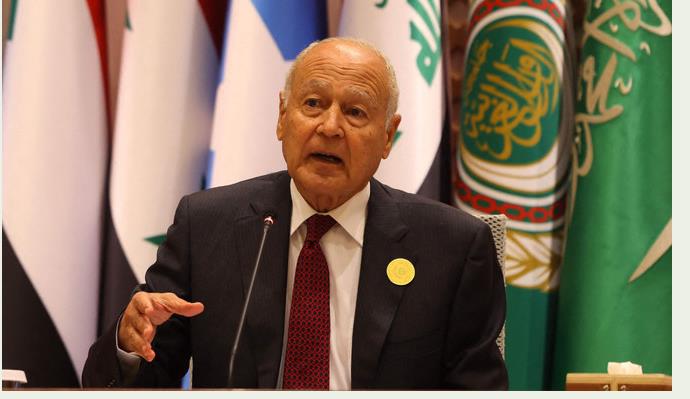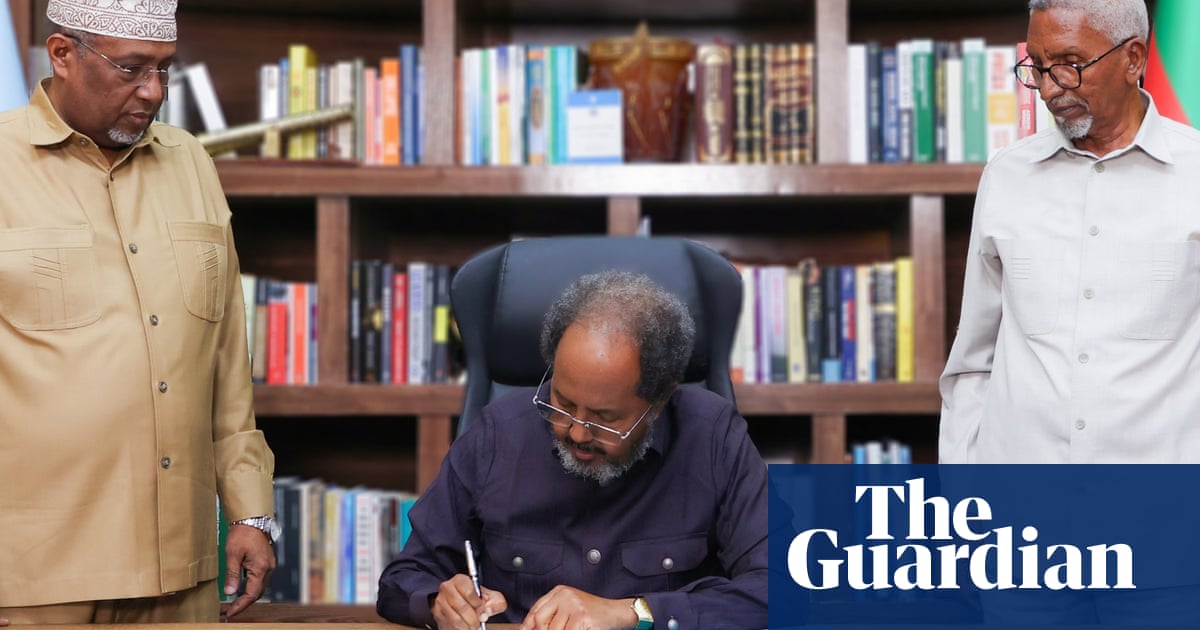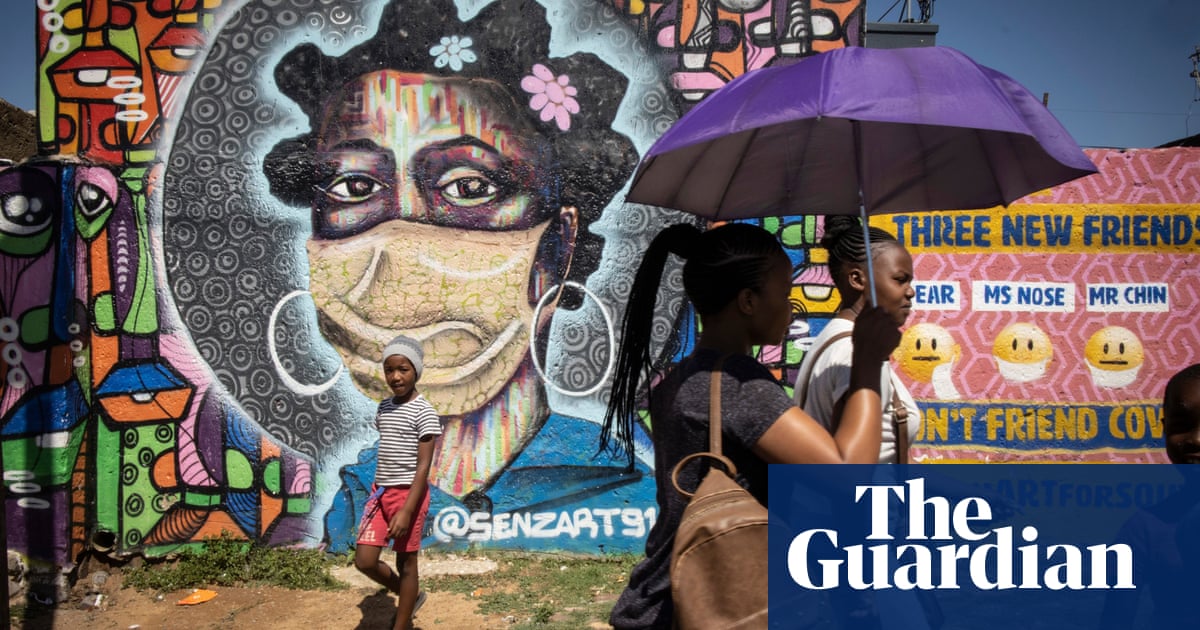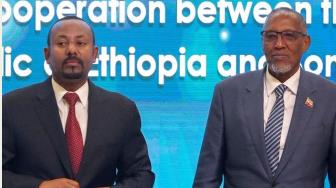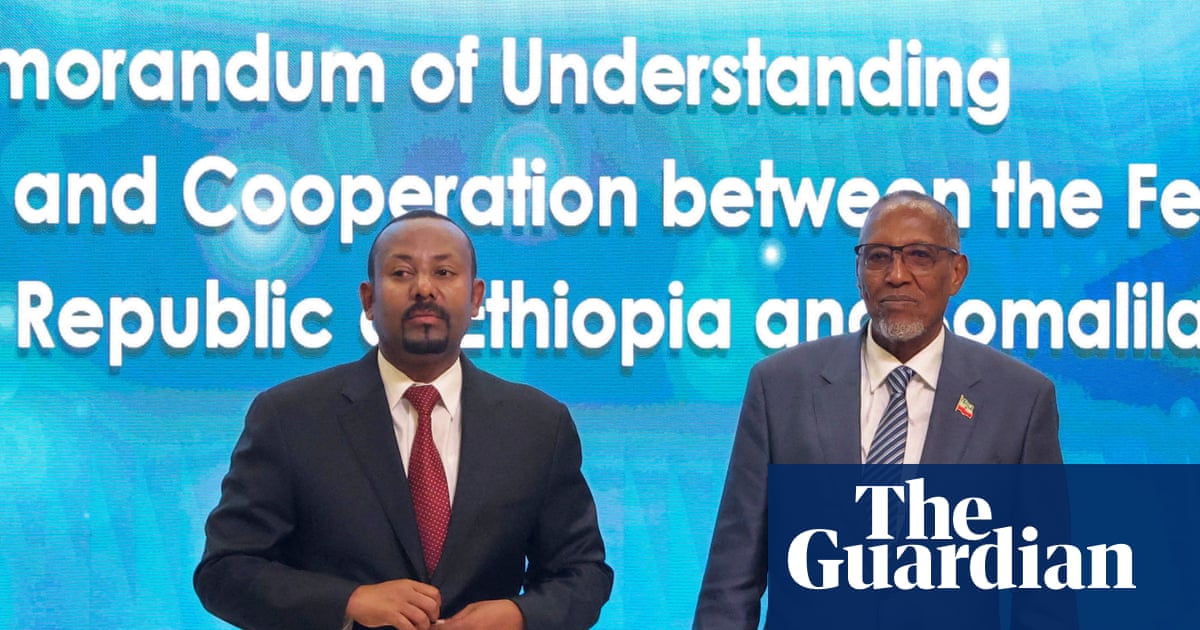
Ethiopia has signed a “historic” deal granting it naval and commercial access to ports along Somaliland’s coast, in exchange for recognition for the breakaway republic’s independence, it has been announced.
The Somali government, which has long held that Somaliland remains a part of the country, announced that it would convene an emergency meeting of its cabinet in response to the memorandum of understanding, according to state news agency Sonna.
Speaking at the press conference in the Ethiopian capital, Addis Ababa, after his meeting with the country’s prime minister, Abiy Ahmed, Somaliland’s president, Muse Bihi, said: “We are pleased to announce, and want to express gratitude to the prime minister, and Ethiopia, according to our agreement written here, that we will give 20km of sea and they will recognise us.”
Ali Hassan Mohamed, Somaliland’s information minister, described the deal as a “gamechanger”, reiterating his government’s view that the deal involved 20km (12 miles) of sea access in exchange for diplomatic recognition.
A statement published on X, formerly Twitter, by Abiy’s office welcomed the agreement but made no mention of recognition of Somaliland, only committing to “advance mutual interests through cooperation on the basis of reciprocity”.
It added: “The memorandum of understanding shall pave the way to realize the aspiration to secure access to the sea and diversify its access to sea ports,” ushering in a “new chapter of cooperation” and “regional integration in the Horn”.
Redwan Hussein, an adviser to Abiy Ahmed, said the deal was a “step ahead in the right direction for this and generations to come”, adding that details of the memorandum would be formalised in a follow-up meeting in a month.
The meeting between Ethiopia and Somaliland came days after Somalia and Somaliland announced a breakthrough in talks in Djibouti, committing to further dialogue between their respective capitals.
Abdikarim Hussein Guled, Somalia’s special envoy to Somaliland, said the deal constituted a “blatant disregard for international norms” by Ethiopia and undermines progress made between Hargeisa and Mogadishu. Somalia’s former president Mohamed Farmaajo posted on X: “The agreement signed by Ethiopia with Somaliland today is a serious concern for Somalia and the whole of Africa.”
Somaliland declared independence from Somalia in the early 1990s, when Somalia had descended into a protracted civil war. Hargeisa, Somaliland’s capital, has been actively seeking international recognition for more than three decades, within the borders of the former British protectorate. Formal recognition by Ethiopia would present Somaliland with its biggest opportunity yet to begin overcoming its international isolation.
Ethiopia lost access to its Red Sea ports in the early 1990s when Eritrean insurgents in the country’s north gained control of Ethiopia’s northern coastal region – which was a former Italian colony – and then declared independence.
Ethiopia is heavily reliant on Djibouti for international trade, with more than 95% passing through the Addis-Djibouti corridor, a vulnerability it has sought to mitigate by diversifying its options. Ethiopia has been signalling its interest in acquiring access to ports along east Africa’s seaboard since October, and said it would assert its rights, raising concern among its neighbours.
In a televised address, Abiy said Ethiopia should have a say in the use of the Red Sea ports of its coastal neighbours, just as countries downstream along the Nile River have been allowed to negotiate use of the river that Ethiopia has built a dam across to generate power.






